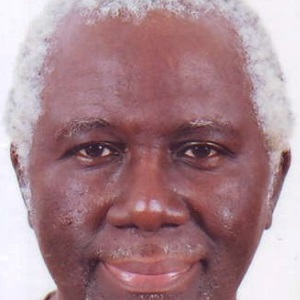
An expert in Strategy, Sustainable Development, Economics and International Finance, Mohamed T. Condé is a specialist in Urban and Regional Development, Industries and Infrastructures, Project Management, Architecture and Engineering of Complex Systems, Internal Audit-Control, Governance-Risk Management. He is a trainer-researcher and consultant.
In March 2024, he will be defending his Executive Doctorate of Business Administration on the theme: “Towards a Sustainable Development Strategic Management Framework for Electric Power Companies in West African Countries”, directed by Prof. Marielle Payaud, iaelyon school of Management.
Thesis Direction
Pr Marielle Payaud
Thesis Title
Towards a Strategic Sustainability Management Framework for Electric Power Companies in African Countries
Abstract
This research work aims to elaborate a model-framework of strategic management in sustainable development for the power companies in the West African countries. Some analyses allow the identification of the necessary pathways for these public utilities to obtain viable net performances in a long period (more than 20 years), through a better valorization and use of the resources, reaching more than 50% of their production-possibilities frontiers, to fill the gaps in the output, distribution, consumption and revenues needs. The following necessary conditions are: a) the assets and goods will be better mobilized and valorized; b) these organizations must be oriented in a trajectory of sustainable development; c) they have interest to adopt a framework of strategic management with their stakeholders; and d) their performances will be viable, if they are under control and optimize the risk management process, value creation and failure reduction. The strategies of these companies should be coherent with the relevant application of the solid energy policies. The package of solutions encompasses four connected axes: 1) these enterprises must continuously pursue positive constructive results, with key performances indicators (by productivity and profitability gains), and value creation (on the health and biological, environmental and eco-systemic, social and societal, governance and institutional, security-safety and resiliency, economic and financial fields). The programs of risk management, business continuity plan management, and total quality control will be reinforced in their effectiveness, by streamlining costs, from a better resource optimization, attracting talents and highly trained human and intellectual resources, natural and ecological, material and physical, scientific and technological, social and institutional, contractual and financial goods, under top protection; 2) the bases of the strategy architecture will be upgraded, avoiding disruptions and confusions, around the following 10 blocks of pillars: a) vision and sharing values; b) goals and targets; c) needs and requirements; d) general objectives and specific objectives; e) roles and missions; f) partner organizations and stakeholders; g) structures and responsibility centers; h) outputs, products and services, and outcomes; i) environmental and economic effects, human and social impacts; j) resources in stocks and flows, capital and revenue stocks and flows; 3) the portfolio of actions, programs and projects will be articulated and implemented, by harmonizing and clarifying the paths and interactions; and 4) in the complex programs and organizations, it is more useful and fair for the collectivity, the organization and society to consolidate the management and governance of the enterprise, by a credible and competent commission, a key group of supervision and monitoring. The strategic management of sustainable development, providing relevant solutions to the great problems of coordination, inter-acting on the dynamics of the relations with the environment and stakeholders, on long periods, will contribute to revamp the prepared organizations and societies, players and teams, backed by the resilient, reliable and sustainable electric energy networks and infrastructures, generating more resources and fiscal spaces.

